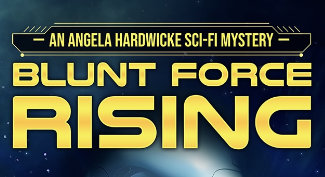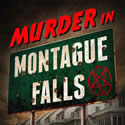About a month ago I was working on an exchange in [i]Crossline[/i] between the main character and a secondary character, and while I felt their conversation was moving along, something was missing. This was more of a character-building scene than a plot-driven scene, and so it was mostly straight dialogue. Still, I wasn’t quite feeling it. For the purposes of this blog, we’ll call this Scene A.
As I often do when I’m feeling a little out of my groove, I picked up a book I refer to now and About a month ago I was working on an exchange in [i]Crossline[/i] between the main character and a secondary character, and while I felt their conversation was moving along, something was missing. This was more of a character-building scene than a plot-driven scene, and so it was mostly straight dialogue. Still, I wasn’t quite feeling it. For the purposes of this blog, we’ll call this Scene A.
As I often do when I’m feeling a little out of my groove, I picked up a book I refer to now and again for style points, and suddenly I was off to the races. I was filling in the exchange with subtext and nuance, getting more inside the character’s heads, and revealing more about their nature. OK. Now I was really grooving. All in all I spent a few weeks on this scene, until I felt I had worked it all the way through.
And then …
Last weekend I wrote a different scene, which we’ll call Scene B, one that preceded Scene A. Scene B was particularly important, I felt, because it established another relationship that becomes important later on, and also connected the dots between an even earlier scene and one that again becomes important not long after. It was a good scene, too. The characters interacted naturally, and revealed some important information.
The result, however, is that this connective scene–Scene B–changed the mode of this larger sequence for the better–but it took Scene A out play. I have since cut Scene A into smaller parts, using one small piece of it earlier on, with the intention of using the rest of it later, where it might fit better.
Thing is, while I was frustrated at having to cut a scene I spent so much time on, I was okay with it. Because as I write, I’ve learned that there’s no waste. Scene A was vital because it helped define Crossline’s narrative style, even if the scene itself never makes the final version of the novel. It might, in some form, but even if it doesn’t, it was extremely valuable.
So even when a groove turns out to be temporarily ungroovy, the end result can be groovier than I anticipated. It’s one of my favorite parts of writing. No matter how I’m going, there’s always room for me to be surprised. Even when it seems that I’m stuck, I can get unstuck, and even when that solution doesn’t end up solving my immediate problem, in the long run, I sometimes come out way, way ahead.
It’s been a tough lessen to learn, but I’ve come far enough as a writer to trust the process, having faith that if I trust myself enough to just let the writing evolve as it does, I’ll ultimately get where I need to be.





